
If there’s any mark of a really great film, it’s when one sticks in your mind for long after, whether you want it to or not. Today, we’re going to look at ten films that you may not want to stick in your head, but ten films that almost definitely will be stuck in there nonetheless. Going from absolute gross out horror to the most upsetting emotional dramas in cinema, here are ten films that will more than likely traumatise you for life.
1. Irreversible (Gaspar Noe, 2002)
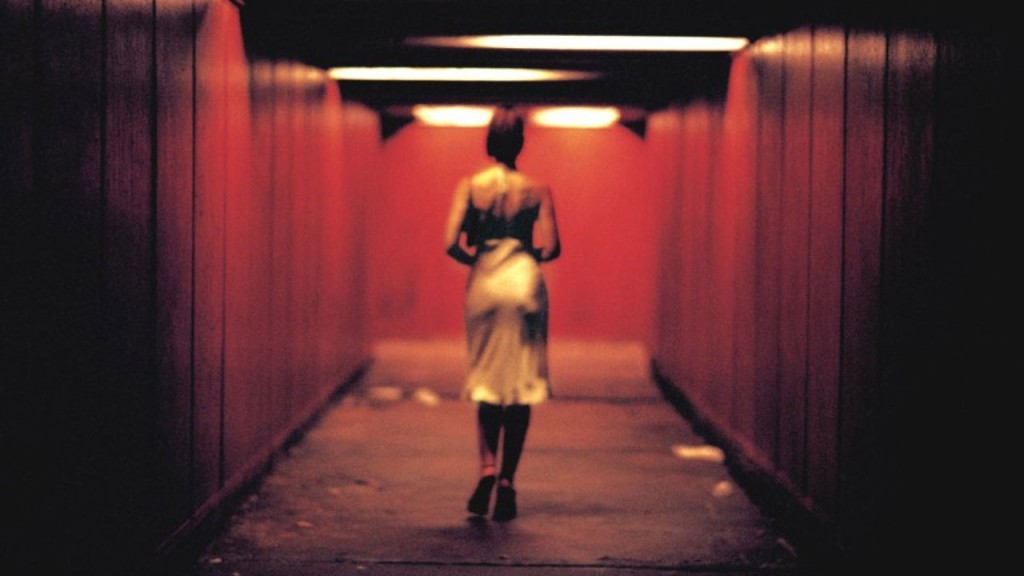
Sticking to the typical choices first, let’s start with Gaspar Noe’s controversial 2002 film, Irreversible. Avoiding spoilers, the film is about a group of three, two men and a woman, who have a night out that goes horrendously wrong.
The film’s topic and tone is upsetting and disturbing enough without any further additions, but, Noe being Noe, there is also the added impact of telling the narrative backwards, adding disorienting cinematography that sways and spins around and even adding a sound frequency in the background during the first thirty minutes or so that were placed there with the intention to make the audience feel nauseated, as if the events on screen wouldn’t be capable of doing so already.
To go further, and into spoilers for Irreversible, there is also the horrific rape scene, longer than five minutes in run time, all done in one soul-shaking take, even with the subtle addition of a CGI shadow in the background that only those with a keen eye will notice on first viewing, a shadow that sees the disturbing event and simply walks away rather than help.
Irreversible also has one of the most brutal murders even put to screen quite early on, with a man’s head brutally crushed by a fire extinguisher, until all that is left is a pulpy mess. Add to that a violently fast moving final shot that would make even an astronaut dizzy, and you’ve got one of the most bone-breaking, soul-crushing films ever made.
2. Martyrs (Pascal Laugier, 2008)
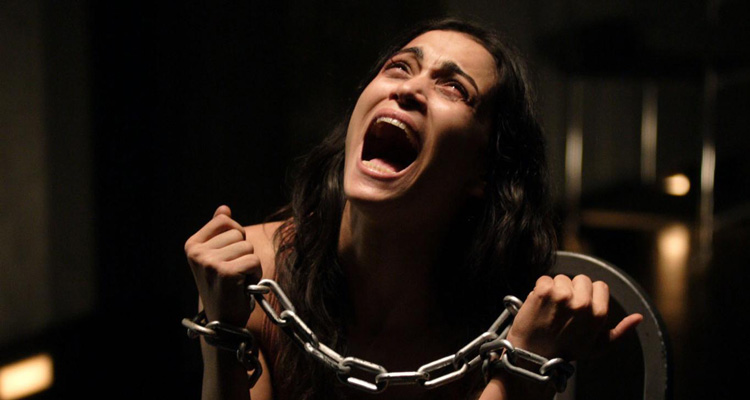
Keeping with a more generic pick, just to get them out of the way, Pascal Laugier’s Martyrs. Released in 2008, the film focuses on the lives of two girls. We first see them as young girls, one horrendously traumatised due to being captured and tortured for months, perhaps years, and the other, her best friend, simply trying to help.
The opening scene alone is horrifying, a brutal smash cut into a girl running, sobbing, waving her arms around and screaming, looking barely alive… and it only gets worse from there.
A lot of what makes Martyrs as much of a gut-punch as it is is the fact that, in the end, the violence is given a reason. There’s no sadistic killer, no joy coming out of the excessive violence, no, the film gives a clear cut reasoning as to why all of this violence is… necessary. And it is. It’s easy to understand why the events of the film unfold, all of them, and that only makes it feel so much more real, so much more depressing.
Martyrs is one of the few films wherein when the credits roll, there are no words left. No conversation about the film to open up, just a severe depressed state that lingers long after. It is perhaps the most brutal film ever crafted, which makes it even more of a shame that Laugier hasn’t reached the same height since, and even worse that the film was remade in 2015 and lost all of its’ effect.
3. A Serbian Film (Srdan Spasojevic, 2010)
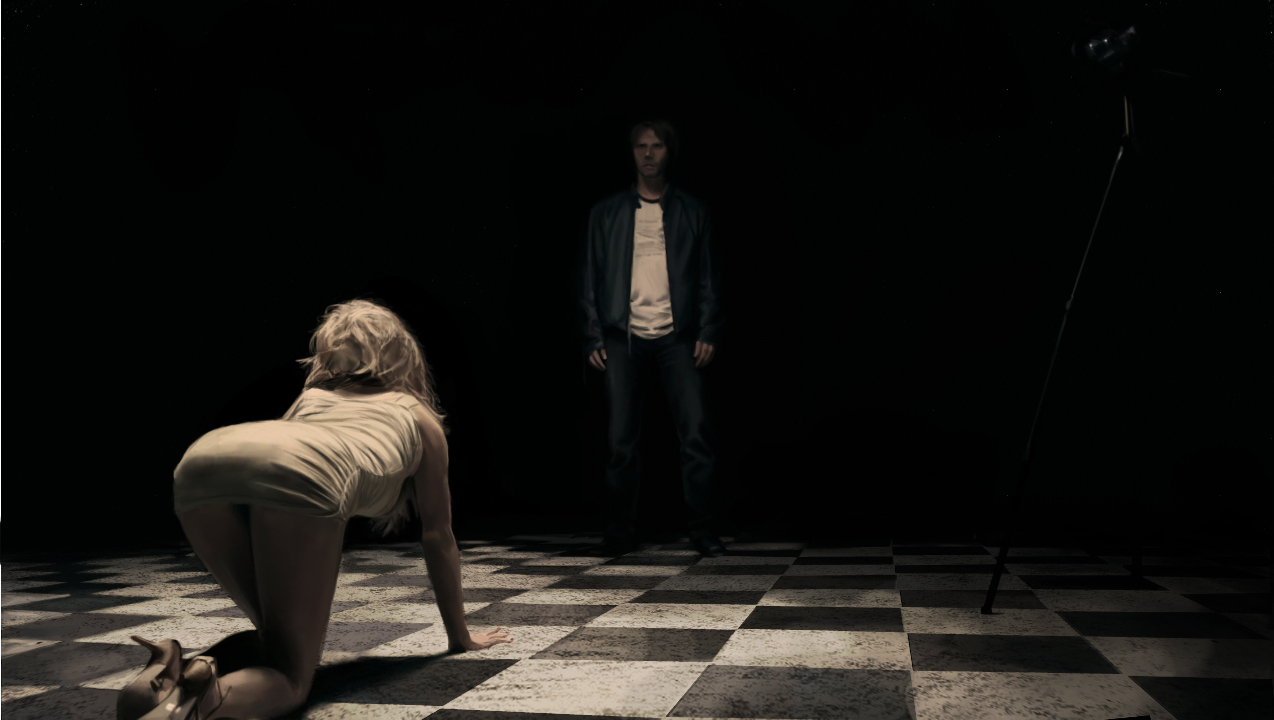
And, now for the last of the generic choices on the list… maybe anyway, this is A Serbian Film, directed by Srdan Spasojevic and released in 2010. This film is probably the one that you’re most familiar with from the entire list, a film so controversial that it was cut in all kinds of ways, banned in some places, and ultimately, no one even seemed to enjoy it too much.
Some of the debates stemming from the film, particularly those about whether A Serbian Film is art, pornography, or something else altogether are absolutely fascinating, and they might just make A Serbian Film somewhat important to how film censorship works.
However, the film itself is artistically questionable. At what point does Cinema stop being art and become sadism? The film is ridiculously provocative, pornographic, violent… everything, and yet, still, it has to be considered an artistic work.
Where can the line be drawn? Even if it isn’t a perfect film, one should see it, even if solely for the sake of the discussion of when Cinema stops being art, when censorship should occur, if it should, etc. It’s an absolutely fascinating film, even if a severely flawed one, as well as a film that is essential to censorship studies.
4. Come and See (Elem Klimov, 1985)
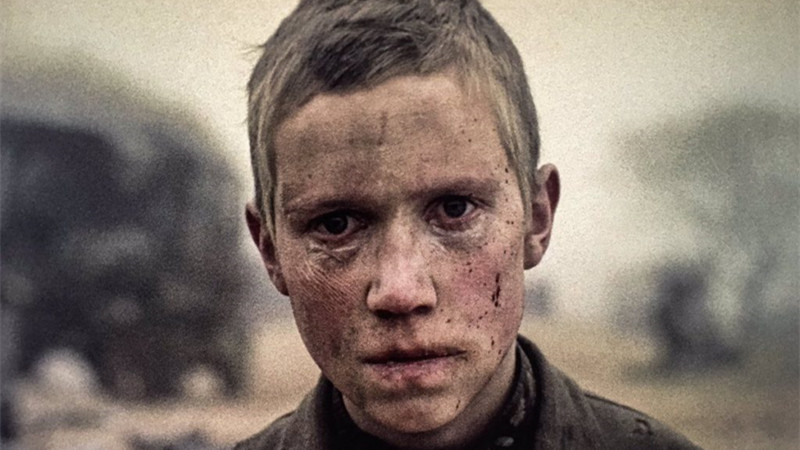
Now moving to something more focused on emotional trauma as well as trauma due to excessive horror, Elem Klimov’s Come and See is a film depicting an invasion in Russia by German forces, and the fallout of the actions from the perspective of a teenage boy.
The film is absolutely petrifying, in a way that remains unequalled in the entire genre of war cinema. The film doesn’t focus so much on the battleground, it is more intent on portraying the lives of the everyday people when faced by war, and rather than taking it lightly, the film is truly brutal, in a way that few other films are.
The bombs make your heart race, the colour makes your eyes wide, and all of it is so surreal and real simultaneously that you struggle figuring out what is reality and illusion, to the point that the entire film becomes a dizzying, horrific experience, or that stays with you for life. You’re never going to forget the size of the explosions, the strange purple tint to the second half of the film, the scenes in the mud… it’s simply unforgettable filmmaking, and perhaps the greatest war film ever made.
5. Manchester By The Sea (Kenneth Lonergan, 2016)
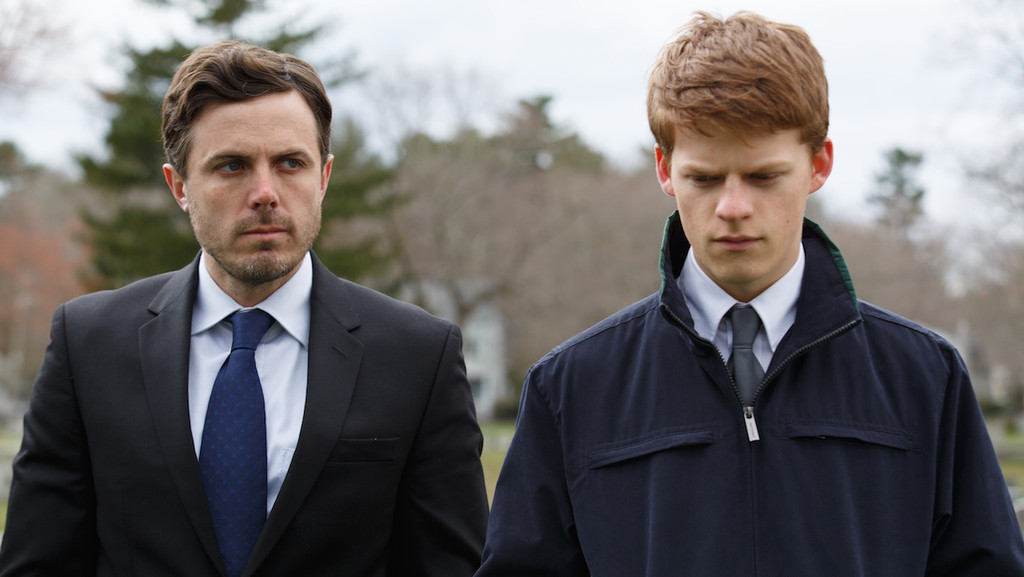
Now for one that will certainly never leave your mind, the hauntingly sorrowful Manchester By The Sea, written and directed by Kenneth Lonergan and released in late 2016. There is just no describing how mournful and upsetting this film is, for the entire runtime. Almost no other film manages to sustain such a gripping emotion for so long, without really wavering at all, and the impact that the film has is almost unmatched, especially as far as recently released films go.
There is such a clear cut emotion to the entire film, something that appears in all of Lonergan’s films, in You Can Count On Me, there’s a melancholic nostalgia, in Margaret, there’s a tense anxiety and regret and in Manchester By The Sea, Lonergan’s finest work, and also his most popular, there is this reeking, distinct, desperate grief throughout the entire film, before the audience is even made aware of the cause.
It’s one of the heaviest film viewing experiences you could possibly have, and one that has a feeling to it that you will never forget. It is a film on it’s own level.